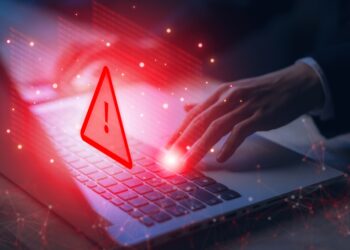A federal judge recently issued a rare default judgment for discovery abuses in favor of Red Wolf Energy Trading, LLC. The judgment centered around chat collaboration tools in the workplace, such as Slack, Microsoft Teams, etc.
Senior U.S. District Court Judge Mark L Wolf entered a default judgment against the defendants and granted a second motion for sanctions. Because the defendants failed to produce critical digital evidence, in August 2022, the court ordered defendants to provide the plaintiff with a copy of a 2019 Slack archive.
With that archive in hand, we took a more comprehensive forensic approach to data collection by modifying the defendants’ collection process each time a chat message hit on a search term. The defendants had only looked at 11 messages – the message that hit a search term, the five messages preceding that message, and the five messages that followed. Our team recommended a 24-hour window instead.
While just one of several in a more comprehensive approach to data collection, this specific adjustment produced the smoking gun, but this was unbeknown to our team. Across disciplines, effective forensic experts do not need full case context to do their jobs effectively. In this instance, we specified what should have been pulled, parsed the data and passed it to the case team. With the right data at their disposal, the case team quickly identified the critical evidence that had been omitted which led to the rare default judgment.
Digital Forensics Growing in Discovery
This case reinforces the growing importance of digital forensic expertise in meeting discovery obligations when exporting and producing chat communications. For litigants and their counsel, the case provides a cautionary tale about the dangers of defying discovery obligations and court orders concerning the production of documents.
As communications shift, eDiscovery needs to keep pace, and this example illustrates how slight differences in the forensic approach can literally make or break cases. Chat platforms have exploded in popularity. Slack alone claims nearly 80% of Fortune 100 companies use its platform, but Microsoft Teams commands the lion’s share of users in 2022. Teams claims 270 million users, and Slack cites 18 million active users.
Ten years ago, email dominated, but by 2014, chat platforms had already taken off. In the post-pandemic hybrid workplace, reliance on corporate communication channels, email for example, is decreasing and becoming obsolete in some cases. Employees have moved communications to less formal channels, including chat, video conferencing and texting.
In litigation, as these conversations shift, so does the forensic expertise required for effective eDiscovery, and demand is rising for lawyers and other experts with the right technological competence. The expertise required to manage these communication channels effectively and reconstruct conversations across multiple communication vehicles has become critically important. The most important conversation might begin in email, move to chat, then to text and finally to a call, before moving back to chat.
Forensic Science Growing and Shifting Rapidly
According to The U.S. Bureau of Labor Statistics, employment of forensic science technologists is expected to grow 11% over 10 years (2021-2031), “much faster than the average for all occupations.” While sector employment is projected to grow by just 2,000, this number doesn’t come close to telling the whole story. “About 2,500 openings for forensic science technicians are projected each year, on average, over the decade,” and “many of those openings are expected to result from the need to replace workers who transfer to different occupations or exit the labor force, such as to retire.” Many of these forensic science technologists work in cybersecurity, but demand for these skills is growing everywhere, including law.
The eDiscovery implications of these shifts are massive because the right forensic approach can turn the tide of a case. The implications are perhaps most obvious in trade secret cases like Red Wolf, but in many ways, these trends apply across all case types. In most cases, forensic experts work with two primary goals in mind – ensuring proper analysis of all available data and determining what to analyze or knowing what is knowable.
Are Discovery Obligations Being Met?
Both defendants and plaintiffs have important forensic responsibilities.
Defendants often need to prove a negative or prove a conversation did not happen. This requires a deep understanding of how the archive was built and used. They must show step-by-step, why nothing was there. The approach should be very expansive, rigorous and transparent. When done well, judges have awarded adverse inference instructions against plaintiffs, and defendants should point out how they would have performed the verification in the plaintiff’s role. In one instance, for example, a plaintiff focused only on Slack export capabilities, ignoring the ability to search inside Slack, but diligence requires running your own searches.
Plaintiffs and counsel, on the other hand, like in the Red Wolf case, need to make the court aware of defendants’ discovery shortcomings. Judge Wolf considered the totality of the circumstances when issuing his ruling and the repeated failure of defendants to meet their discovery obligations and produce the relevant evidence they were required under law to produce.
A Cautionary Tale for Counsel
Processes have gotten complex and gone omnichannel. Your client is not a discovery expert; nor are they looking at this process critically to ensure it makes sense. Counsel must protect clients’ best interests with forensic experts to help ensure discovery obligations are being met and full compliance with court orders.
Do not play games with the discovery process. If the discovery approach is not sufficiently transparent and credible, it may result in much wider access to your data by the opposing party, and if the opposing party proves your withholding of evidence was not defensible, it could end your case.








